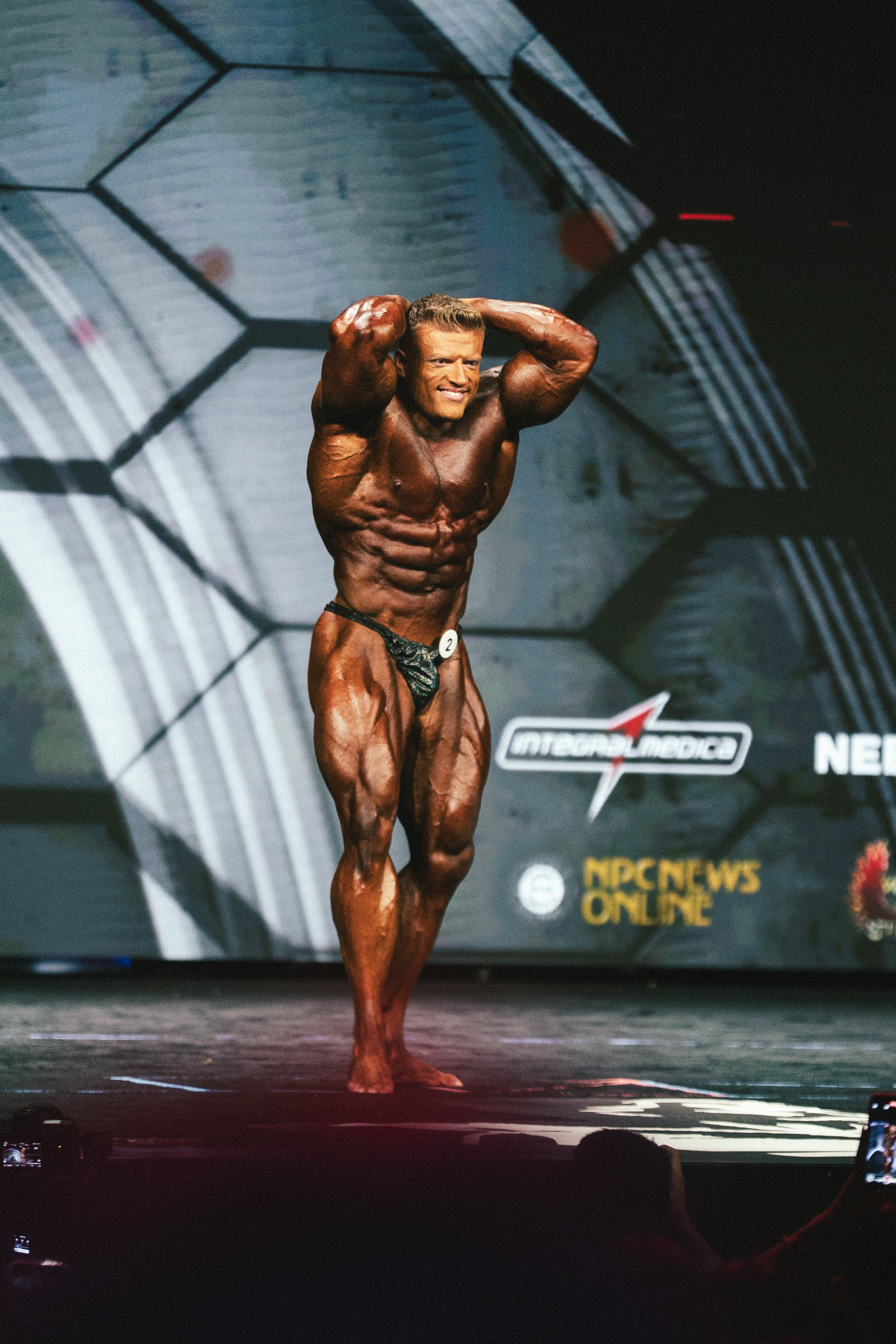Tags: Regeneration
Causes, Effects and Strategies for Prevention in Bodybuilding and Strength Training
Muscle loss is a central issue for all strength athletes and bodybuilders, as it can undo hard-earned progress. While the body adapts to stress and promotes muscle growth through training, there are numerous factors that contribute to muscle loss. In this article, you'll learn what causes muscle loss, how it 's influenced by training, and which strategies can help you specifically prevent it and maximize muscle growth.
What is Muscle Loss?
Muscle loss, also called muscle atrophy, describes the loss of muscle mass, which can be triggered by various factors. There are two main types:
- Pathological muscle loss due to disease or inactivity
- Catabolic muscle loss, which can be caused by stress, overtraining or inadequate nutrition
Causes of Muscle Loss
- Calorie deficit and nutrient deficiencies: Inadequate protein intake or long-term calorie restriction lead to muscle loss.
- Chronically elevated cortisol levels: Excessive stress can cause cortisol to promote muscle loss.
- Insufficient recovery: Lack of sleep or rest prevents muscle recovery and growth.
- Overtraining: Excessive training volumes or lack of rest can trigger catabolic processes.
- Low testosterone levels: Testosterone plays an essential role in maintaining and building muscle mass.
You can find out more about targeted muscle building in the article The Bulk in Bodybuilding – the right strategy for muscle building .
Effects of Muscle Loss on Strength and Recovery
Muscle loss not only has visual consequences, but also negative effects on general performance and health.
Negative Effects of Muscle Loss:
- Reduced strength and lower performance
- Increased risk of injury due to weaker muscles
- Delayed muscle recovery after training
- Reduced metabolic rate, which makes fat burning more difficult
Targeted management of nutrition, regeneration and training control is essential to avoid muscle loss and keep the body in an anabolic state.
How Does Strength Training Affect Muscle Loss?
Strength training can be both an effective protection against muscle loss and a potential cause if not properly managed. The key is to strike the right balance between training intensity, volume, and recovery.
Influence of Training Load
- An appropriate training stimulus promotes the maintenance and development of muscle mass.
- Too little exercise can promote muscle loss as the body reduces unused muscle mass.
- Excessive training volumes without sufficient recovery can lead to catabolic processes.
Importance of Recovery
- Inadequate recovery after intense training can accelerate muscle loss.
- Recovery phases are essential to enable muscle repair and adaptation processes.
- Periodization and deload units can help avoid overtraining.
Strategies to Prevent Muscle Loss for Bodybuilders
1. Nutrition
- Adequate protein intake: At least 1.6-2.2 g of protein per kg of body weight.
- Carbohydrates after training: Support muscle building and prevent catabolic processes.
- Healthy fats: Essential for hormone production (especially testosterone).
- Hydration: Adequate fluid intake optimizes muscle metabolism.
2. Regeneration and Sleep
- Sleep duration: 7-9 hours per night are essential for muscle regeneration.
- Limit caffeine consumption: Caffeine should not be consumed after the early afternoon as it can disrupt REM sleep.
- Maintain consistent sleep times: A regular bedtime contributes to better recovery.
- Cool room temperature: An optimal sleeping environment is between 17-19°C.
- Avoid electronic devices: Screen time before bedtime can inhibit melatonin production.
3. Training Control
- Intelligent load control: Training too frequently without sufficient recovery can promote muscle loss.
- Include deload units: Periodic unloading phases prevent catabolic conditions.
- Varying training methods: Different types of exercise protect against muscle loss.
4. Mental Strategies
- Meditation: Reduces stress hormones like cortisol, which can promote muscle loss.
- Breathing techniques: Promote relaxation and improve the quality of regeneration.
- Targeted recovery techniques: Massages or active regeneration support muscle building.
5. Useful Supplements to Support Muscle Maintenance
- EAAs (essential amino acids): Can reduce muscle loss during low-calorie phases.
- Creatine: Promotes strength building and protects against muscle loss.
- Ashwagandha: Lowers cortisol and can prevent muscle loss.
- Omega-3 fatty acids: Support healthy inflammation regulation.
- Vitamin D & Zinc: Promote testosterone production and support muscle maintenance.
Conclusion: Targeted Prevention of Muscle Loss and Long-Term Maintenance of Muscle Mass
Muscle loss is a serious problem for bodybuilders, but it can be prevented with targeted measures. Adequate protein intake, optimized training methods, and well-thought-out recovery are essential to minimize muscle loss.
Particularly important are appropriate sleep hygiene, balanced caffeine consumption, and consistent exercise control to counteract catabolic processes. Regular meditation can also help reduce stress and support optimal hormonal balance. Those who follow these principles will not only maintain their muscle mass but also maximize their long-term performance in bodybuilding and strength training.


